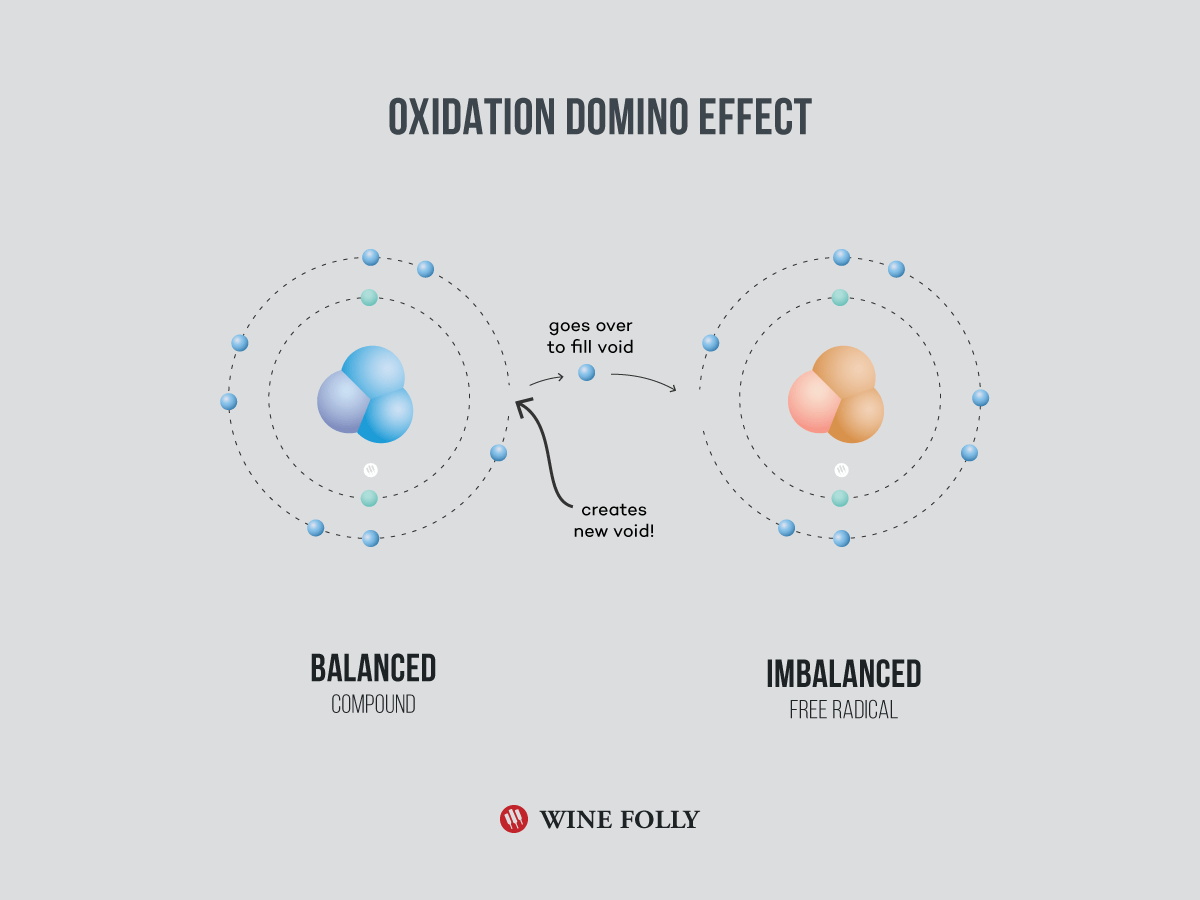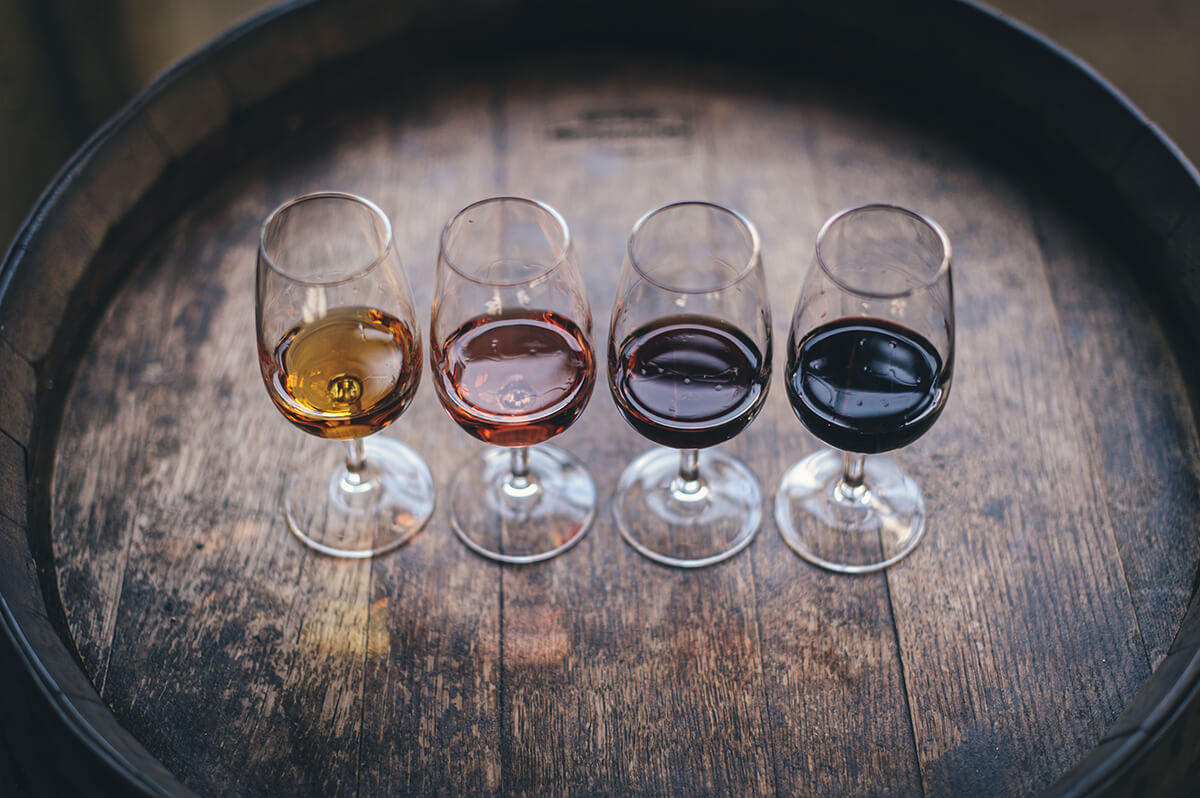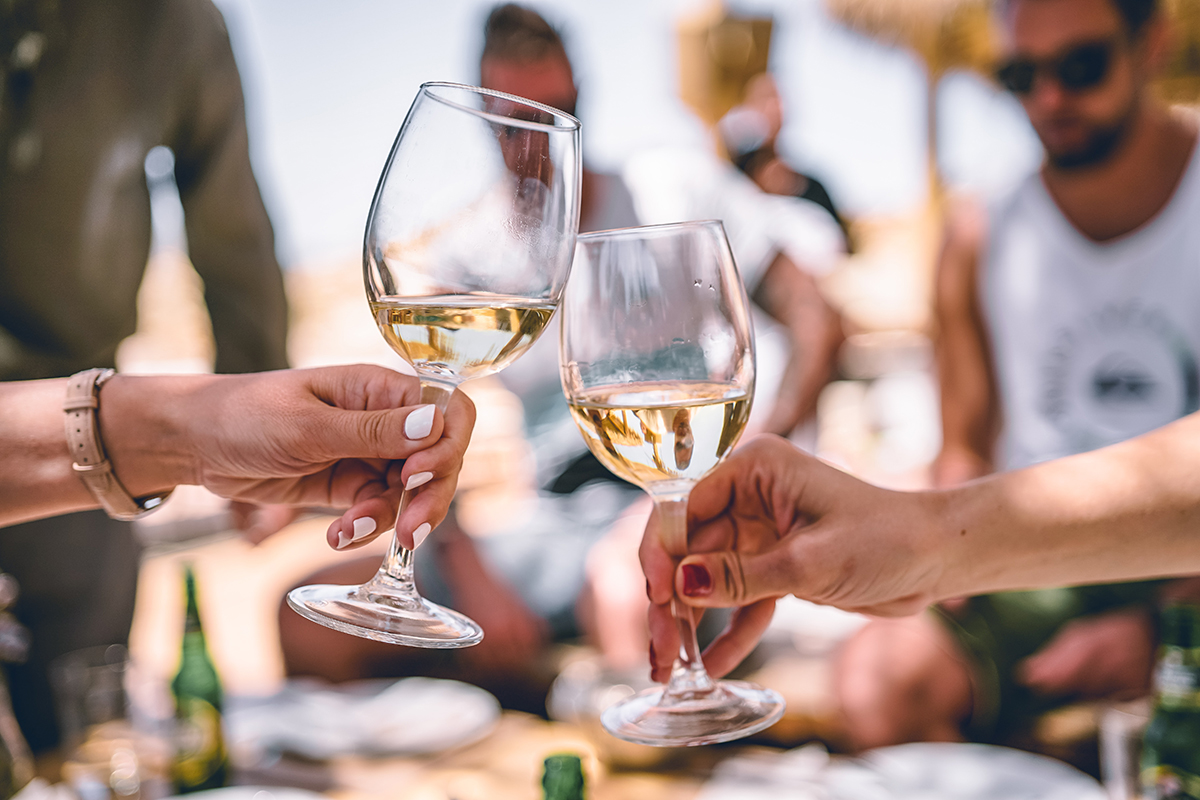Wine antioxidants: we keep hearing about how they’re good for us. For instance, a glass of red wine at dinner, “for the antioxidants.” It feels a little like “medicinal whiskey.” Is this yet another snake oil cure?
So, should we care about wine antioxidants? And, how do antioxidants help us with our health? To answer that question, you’ve got to start from the beginning.

What are Antioxidants?
Antioxidants are molecules produced inside and outside of our bodies that prevent or slow damage to our cells.
Cell damage leads to accelerated aging and disease so, these antioxidant molecules are crucial to survival.
Very basically, Antioxidants protect against oxidative stress, which is implicated in many life-threatening conditions:
- Aging
- Cancer
- Diabetes
- Heart disease
- Brain function decline
Oxidative stress occurs when there are fewer antioxidants in the body than reactive oxygen species (ROS – basically, imbalanced molecules and free radicals that are derived from molecular oxygen). Our bodies and the environment generate ROS, it’s impossible to avoid them.
ROS are unstable and seek stability by scavenging other cells, lipids, proteins and DNA. They hunt for the electrons that they’re lacking, and thus damage cells.

One simple example is a row of dominoes lined up, each one representing a stable molecule. ROS “tennis balls” roll over and bump into the first domino, making it unstable and causing it to fall onto the next one. The whole row will eventually fall unless something intervenes and stops the cascade of destruction.
However, antioxidants are like the hand inserted between the dominoes.
Thankfully, we can assist our bodies in this struggle by supplementing the antioxidants they naturally produce with other sources like red and white wine.

How to Find Wine Antioxidants
Red wine has a number of antioxidants:
- Resveratrol (from grape skin) may help produce “good” cholesterol (HDL), reduce production of “bad” cholesterol (LDL), and prevent blood clots. It’s present in very small amounts in wine, but can be found as a supplement derived from wine.
- Quercetin (from grape skin sun exposure) may boost immunity and combat allergies. Quercetin is a type of tannin in wine.
- Tannins (from grape seeds/skins) Several other tannin compounds may prevent microbial infections and protect DNA.
- Catechin / Epicatechin (type of tannin from grape seeds/skins) In human trials, catechin and epicatechin lowered total cholesterol and increased “good” HDL cholesterol to “bad” LDL cholesterol.
- Proanthocyanidin (a condensed tannin) may improve joint flexibility, improve blood circulation, prevent bacterial and viral infections, and also combat allergies.
White wine also has antioxidants:
- Glutathione may protect against the damaging effects of toxic chemicals in the environment and help prevent cancer.
- Caffeic Acid may prevent heart disease and kidney complications associated with it.

Fitting Wine Antioxidants Into Your Life
Despite the fact that wine possesses antioxidants, it is still an alcoholic beverage and should be consumed in moderation. The CDC recommends no more than one drink per day for women and no more than 2 drinks per day for men.
Still Not an Exact Science
We still don’t know if the alcoholic content of wine negates its antioxidant benefits. Therefore, it can’t be said conclusively that wine is a reasonable lifestyle addition.
Instead, if you choose to drink wine, remember the most important benefit it brings us is enjoyment. After all, wine is a pleasure and far more than just science and health.